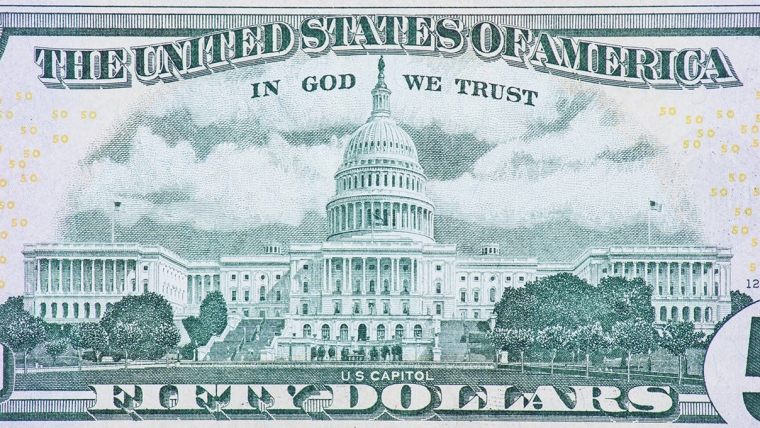
Democratic societies require free and fair elections and an independent and impartial judiciary that resolves disputes without regard to the identity of the parties. Unless the laws that democracies give themselves are enforced impartially and without interference by the executive, a democracy is not worthy of its name.
But is the same true for managing a democracy’s money? If independent, technocratic central banks are not conducive to democracy, how else should monetary policy be conducted? Until recently, asking such questions would have been considered heresy. The conventional wisdom was that central banks should be in charge of monetary policy, and that they should be independent from interference by the executive, the legislature, and even the courts (with some exceptions).
But times have changed. US President Donald Trump has established himself as the chief disrupter of long-held assumptions on almost every political matter, including money. By openly discussing whether to fire the chief of the Federal Reserve, he is not just attacking Jerome Powell personally; he is also targeting the belief that central banks should be independent. Markets took fright, but that should not stop us from pausing and asking whether the current monetary settlement is actually fit for purpose, and specifically for what purpose.
The idea that central banks should be both public and independent is of relatively recent vintage. The Bank of England was established in 1694 and grew into the role of a central bank, even though it was privately owned until after World War II. The US Federal Reserve was established only in 1913. Central banks’ mandate is established by law, with price stability the highest priority for most, although some, including the Fed, have been tasked with other mandates as well, such as full employment.
The price-stability mandate invokes the idea that monetary policy is a technocratic matter best left to experts who are removed from partisan politics. But monetary policy inevitably has distributional effects. For example, creditors lose from inflation but gain from higher interest rates; austerity policies may reduce debt, but they increase unemployment, often with deleterious results for democratic politics.
The money question used to be a hot political topic. In the 1870s, the US Congress debated issues like how much bank money versus public money should be in the system, whether or not the issuance of money should be tied to a metallic standard, and how best to accommodate social and political needs through monetary policy. It was clearly understood back then that monetary policy was a critical tool in the arsenal of politics.
As Christine Desan of Harvard Law School has suggested, the fact that managing money requires expertise should not obscure the fact that money is, or perhaps could be, a “democratic medium.” John Maynard Keynes may have been less willing to put so much faith in democratic money management, but in his Tract on Monetary Reform (1923), he called for the constitutionalising of monetary policy in the name of social justice. The US Fed as originally conceived was meant to achieve just that, according to my Columbia colleague Lev Menand’s “The Fed Unbound”: To create a federated governance structure for coordinating monetary policy and bank supervision in the service of the public.
This is not how the Fed, or other central banks in leading capitalist economies, operate today. Instead, they have become subservient to finance – in no small part by their own doing.
From the early days of the repo market to the heyday of asset-backed securities and derivatives, central banks have used monetary-policy tools to support the expansion of finance from the traditional and well-regulated banking sector into shadow banking. They justified their failure to tame the financial forces they unleashed by invoking the myth of self-regulating markets. And to cover their tracks, they bailed out these markets before they could blow up the global financial system. Perhaps they were independent from politics, but they were hardly being impartial.
In the aftermath of the 2008 global financial crisis, central banks, finance ministers, and regulators vowed that they would never allow it to happen again. These commitments have been belied by the fact that under the supervision of the same agencies, shadow banking has not contracted but expanded, with assets totaling $238.8 trillion in 2024, up from $62 trillion in 2007.
Meanwhile, central banks have done comparatively little to ease the pain for employees and debtors. They hiked interest rates when inflation picked up, even though factors such as the long effects of the COVID-19 crisis in China and Russia’s invasion of Ukraine suggested that supply bottlenecks, which are impervious to monetary policy, played a critical role in driving up prices, as Isabella Weber pointed out at the time.
If central banks don’t serve the people but are more beholden to finance, what can be done? Destroying central-bank independence is not a good idea, because it is more likely to cause another crisis than to solve the underlying problem. But this does not mean that we should preserve the existing system instead of seeking a new monetary settlement. It is high time to rethink how money should be managed in ways that benefit the people and how to ensure that whoever is tasked with this role is not captured by finance.
Katharina Pistor, Professor of Comparative Law at Columbia Law School, is the author of The Code of Capital: How the Law Creates Wealth and Inequality (Princeton University Press, 2019).Copyright: Project Syndicate, 2025, published here with permission.
2 Comments
Great article...and questions posed
IMO 'shadow banking has not contracted but expanded, with assets totaling $238.8 trillion in 2024, up from $62 trillion in 2007.' should concern us all a lot, but who is talking about it and what to do? To put this amount into perspective USA debt is '$36.2 trillion as of June 2025'. My guess is that an international financial crisis will come our way aka a black swan event and with our NZ collective national indebtedness cripple our economy long term and accelerate the decline in most New Zealanders living standards in a brutal way reminiscent of those my grandparents experienced.

We welcome your comments below. If you are not already registered, please register to comment
Remember we welcome robust, respectful and insightful debate. We don't welcome abusive or defamatory comments and will de-register those repeatedly making such comments. Our current comment policy is here.